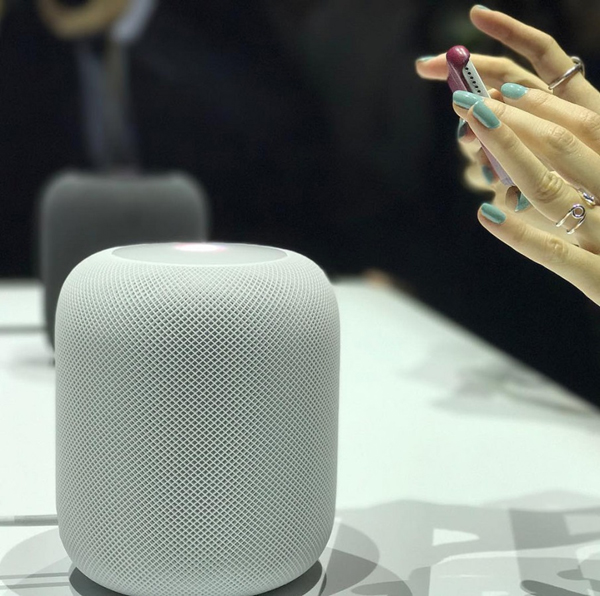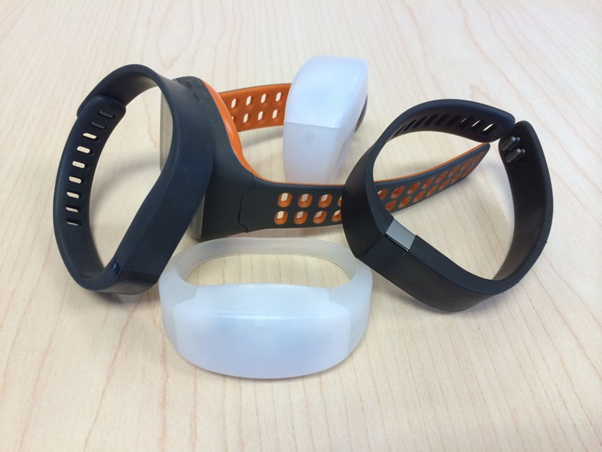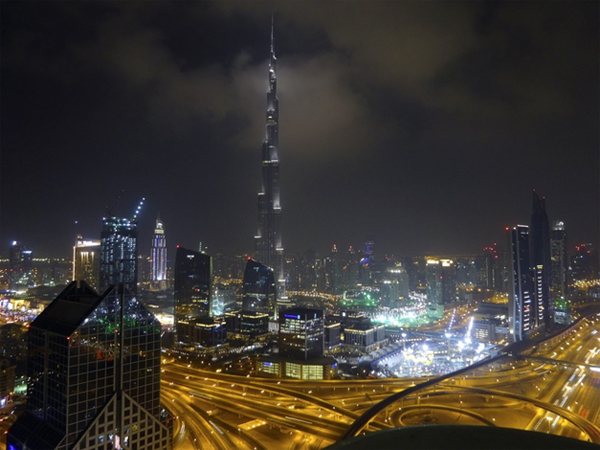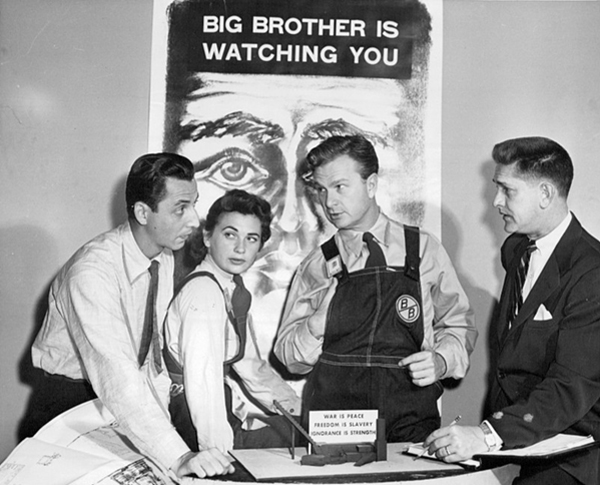Column: The ‘Internet Of Things’ Is Taking Over
[Opinion column written by Chris Garrod]
On February 9th, 2018, Apple suddenly woke up and finally released the HomePod.
What is it? It plays music and, assuming your house and all its gadgets are connected using Apple’s HomeKit ecosystem, it will let you control them via Apple’s intelligent assistant, Siri. It can tell you what the weather or news will be, and it will answer [possibly] whatever other random questions you think of. It can turn off your lights or air-conditioning. And other…. stuff.
If you have an iPhone, you’ll know what Siri is – basically say “Hey Siri, play XYZ” and then pray what the results might be. There are other competitors to HomePod already, primarily Amazon’s Echo, which is powered by its Alexa voice assistant and Google Home which uses Google Assistant.
We live in an IoT world
The Internet of Things or IoT. If you don’t really know what that means, I can assure you, it is revolutionizing your life and the way you live, even if you don’t realize it.
Do you have a smartphone? A fitness wearable such as a FitBit or an Apple Watch? If so, you’re part of the Internet of Things, a term – perhaps badly named – which simply refers to the ability of devices which are connected over the internet, all contributing information from each other into some form of database for a particular reason.
Using a fitness wearable as a simple example. You wear it. It measures your steps, how many floors you’ve climbed, how much you sleep. Depending on your activity or willingness to lose weight, you may log how much you eat each day into a program which is connected to your wearable’s smartphone app. You may run and have a special heart-rate strap if your wearable doesn’t already measure it.
You may even have a Bluetooth connected scale which logs your weight and that information is then absorbed into the same database. That information can get posted online somewhere onto a social media network where you can compete with your friends. All of those devices talk to each other and combine into one database over the internet which has been specifically designed for basically one thing – improving and monitoring your health and fitness.
So, the IoT. Perhaps you’ll have a fridge that will let you know on your smartphone when you need to replace items which have spoiled and send an alert to you when you are grocery shopping. Wait, you don’t already? Go back two years.
Companies in various industries are devoting a large amount of resources and money to invest in IoT technology, so much so that it has become mainstream in many sectors, such as manufacturing and transportation.
In essence, it is the process of digital transformation – that is to say, transforming the physical world into one big digital one.
The beauty of it all
Other than smart fridges and fitness trackers, there are so many new products and innovations, it is impossible to summarize them all here. Yes, people joke about smart toasters and coffee machines but the IoT certainly makes everyone’s lives genuinely smarter and easier.
Right now, the smart home industry is the nexus of the industry and where it is all happening. Companies across the globe are positioning themselves and trying to takeover this portion of the market. Companies like Samsung, Lutron, Nest and Honeywell have been in the market for years, to be joined by groups such as Amazon, Google and now Apple, the latter three simply creating hubs/voice assistants which interface with actual automation systems [such as Lutron or Honeywell]. Smart homes can be programmed so that air-conditioning can come on at certain times of the day to cool/heat your home before you get home or lighting to come on at certain times. Voice assistants can read the news to you in the morning or play music, change tracks, volume etc while driving. And yes, coffee can be made for you.
But the Internet of Things isn’t limited to just home automation. It is worldwide connectivity. People to people, people to things and, of course, things to things.
Waze, the driving app is a great example of the IoT. As described on their website, Waze “is powered and used by drivers all over the world. Drivers connect to one another and work together to improve each other’s driving experience. As a community-based traffic and navigation app, Waze was created as a social navigation tool for private cars.” It is a social app – you plug into the app where you are, where you are going and, using GPS and it being able to then work out your location, how fast or slow you are moving, etc, it will send out alerts regarding how heavy or light the traffic is to others travelling the same route. It is smart, growing smarter the more people use it, has very few limitations and is exactly how to run an IoT business.
Smart Cities
Dubai is a good example of where things may ultimately be heading. Smart cities are those that in the future use the IoT effectively and efficiently to manage both assets and resources. For example, the ability to improve a city’s energy use, its public transport, security, reduction of waste. With one of the highest penetration rates of smartphone usages in the world, Dubai’s ambition isn’t just to be a model smart city with government services being delivered to its citizens digitally, but its ambition is to be “the happiest city on earth” as a result of it. A public/private collaboration, it wishes to deliver over 1,000 “smart services” by 2021. Interestingly, though not surprisingly, as part of that strategy, Dubai also aims to have the world’s first “blockchain-powered government”, one which entirely stores its data in its own secure, decentralized digital blockchain network.
The future of IoT
So, we are increasingly becoming connected and eventually we will live in cities which are also digitally operated. Virtually endless opportunities are possible, many of which we have yet to comprehend or consider.
But there are challenges and the two main issues which the average person faces being part of a such a connected network are privacy and security.
Although we are not quite yet heading towards some kind of Orwellian dystopia, one can see the pressures upon basic privacy and concerns regarding the security of information which IoT presents. Being part of it, you are basically giving up a lot of personal information to third parties. What TV shows you watch, your spending habits, how often you walk, what you weigh, are you married, do you have kids, what your potential income is…. the list goes on. The question to ask is that by giving up that information, will that data stay private and will companies ensure it is secure? By opening up your home and the ability to control your coffee machine from your bed, are you also inadvertently exposing your entire network to third party hackers, and all of your personal information? The ways companies are able to securely and responsibly store the information they obtain from users are critical matters which must be dealt with in the IoT world.
But the excitement really is now coming to a head. With the onset of the “fourth industrial revolution” and the seeping of IoT, artificial intelligence, automation, blockchain, robotics, big data and machine learning into both work and home, we are now well beyond the tipping point: digital transformation will be the driving force of our lives for years to come.
So the HomePod has just come out. The Amazon Echo came out in 2015. The Google Home in late 2016. It feels like Apple is really late to a party. But actually, they’re not, and that’s because the party is really just beginning.
- Chris Garrod is a partner at Conyers Dill & Pearman with opinions on digital transformation including AI, legaltech, insurtech, IoT, blockchain, crypto and fintech
20 Most Recent Opinion Columns
- 13 Feb: Column: Valentine’s Day ‘Say It With A Will’
- 12 Feb: Column: Cultural Dynamics Of SSM Debate
- 11 Feb: Column: Teen Domestic Violence Awareness
- 09 Feb: Column: ‘Truth About Dec 2 Must Be Revealed’
- 08 Feb: Carla Seely Column: Think Before You Give
- 07 Feb: Column: Getting ‘On Board’ With Diversity
- 04 Feb: Column: Plastic Threats To World’s Coral Reefs
- 01 Feb: Column: Self Governance & Same Sex Marriage
- 28 Jan: Column: Data Privacy Day, PIPA & Bermuda
- 26 Jan: Why Is Crypto So Important And Should I Care?
- 22 Jan: Column: ‘Validus & AIG Will Thrive In Bermuda’
- 22 Jan: Column: Island’s First-Of-A-Kind ‘Parent Expo’
- 03 Jan: Column: Eight Habits Of A Wealthy Person
- 18 Dec: Column: The ’50 Shades Of Grey List’
- 17 Dec: Column: ‘We Know That The Sky Is The Limit’
- 13 Dec: Column: Should OTs Vote In UK Parliament?
- 10 Dec: Column: Undiscovered Creatures In The Ocean
- 07 Dec: Carla Seely Column: CFO Of Home Operations
- 04 Dec: Column: Why Just Gibraltar At Conference?
- 03 Dec: Column: The Pattern Behind Trump’s Retweets
Opinion columns reflect the views of the writer, and not those of Bernews Ltd. To submit an Opinion Column/Letter to the Editor, please email info@bernews.com. Bernews welcomes submissions, and while there are no length restrictions, all columns must be signed by the writer’s real name.
-
Read More About
Category: All, News, technology







Great article and great writing. I enjoyed this. I look forward to more technology stories like this from Bernews.